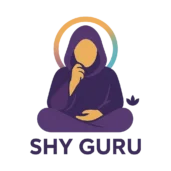The Grand Illusion: Do You Really Have Free Will?
Every day, we make choices—what to eat, where to go, how to respond to a message. We like to believe we are the authors of our own decisions. But what if that feeling of control is just an illusion? What if every decision you make was set in motion before you even became aware of it?
Science, philosophy, and spirituality all raise serious questions about whether free will truly exists. Do our brains decide before we do? Does our environment shape our thoughts before we even consider them? Are we actually in control? Or are we just passengers in a well-scripted play, believing we are the directors?
Neuroscience: Your Brain Decides Before You Do
One of the most fascinating challenges to free will comes from neuroscience. In the 1980s, neuroscientist Benjamin Libet conducted a groundbreaking experiment. He asked participants to press a button whenever they felt like it. While doing this, their brain activity was measured. What he found was shocking. The participants’ brains showed activity milliseconds before they were consciously aware of making the decision.
Later studies extended this time gap. They showed that the brain can prepare a decision up to seven seconds ahead. This occurs before a person becomes aware of it. If the brain acts before we consciously choose, then what exactly is making the decision?
Neuroscientist Sam Harris argues that free will is an illusion. Our choices arise from unconscious brain processes. We have no control over these processes. According to him, the sensation of “choosing” is just an afterthought. It is a story we tell ourselves to maintain the illusion of control.
The Philosophical Debate: Are We Just a Product of Causes?
Philosophers have debated free will for centuries. The concept of determinism argues that every action is the result of prior causes. Your genetics, upbringing, experiences, and external influences shape who you are and what you decide. Spinoza believed that free will was merely our ignorance of the true causes behind our actions.
Arthur Schopenhauer famously put it: “A man can do what he wills, but he cannot will what he wills.” In other words, we may feel like we make choices. However, we do not control the deeper motivations that drive those choices.
Jean-Paul Sartre, on the other hand, strongly advocated for radical freedom. He suggested that we are constantly defining ourselves through our choices. But even Sartre’s philosophy acknowledges the weight of external forces pressing upon our so-called free will.
Everything leading up to this moment was already shaped by prior causes. Was your decision to read this article ever truly yours? Is it possible that your choice was influenced by past events?
The Spiritual View: Fate, Karma, and Letting Go
Many spiritual traditions suggest that free will is an illusion. At the very least, it is something far more complicated than we perceive.
- Hinduism teaches that karma influences our choices, meaning our past actions shape our future experiences. This suggests that free will operates within a framework of prior causes.
- Taoism embraces the idea of wu wei, or effortless action. Instead of trying to control everything, true wisdom comes from flowing with life rather than resisting it.
- Sufism teaches that surrendering to divine will is the ultimate freedom, as trying to control everything only creates suffering.
If these traditions are right, then free will is not about controlling life. It is about understanding the flow of existence and aligning with it.
The Shy Guru Perspective: Maybe It’s Not About Control, But Awareness
So, where does that leave us? Our brains may act before we are aware. Our choices could be shaped by past experiences. Spiritual traditions often encourage surrender rather than control. So, what does free will actually mean?
Maybe free will isn’t about making choices. It’s about becoming aware of the forces shaping us.
Think about the last time you acted impulsively. Did you choose to react that way, or did your emotions take over? What if the real power is not in deciding, but in recognizing why we decide the way we do?
Real freedom might begin when we step outside of the illusion. It starts by becoming conscious of our patterns, influences, and conditioning.
So, Do We Have Free Will?
This debate is not likely to end anytime soon. Some argue that free will is an illusion, while others believe in the ability to consciously shape our lives. The truth may lie somewhere in between.
Maybe we are not fully free, but neither are we fully controlled. Perhaps the real question is not whether we have free will. Instead, we should ask whether we can recognize the deeper forces at play in our choices.
What do you think? Are you truly in control of your actions, or is your brain running the show without you realizing it?
📺 Watch the full video here: YouTube.com/@theshyguru
🌐 Read more at: shy-guru.com
#FreeWill #Philosophy #Consciousness #Mindfulness #Neuroscience #Determinism #Spirituality #ShyGuru
